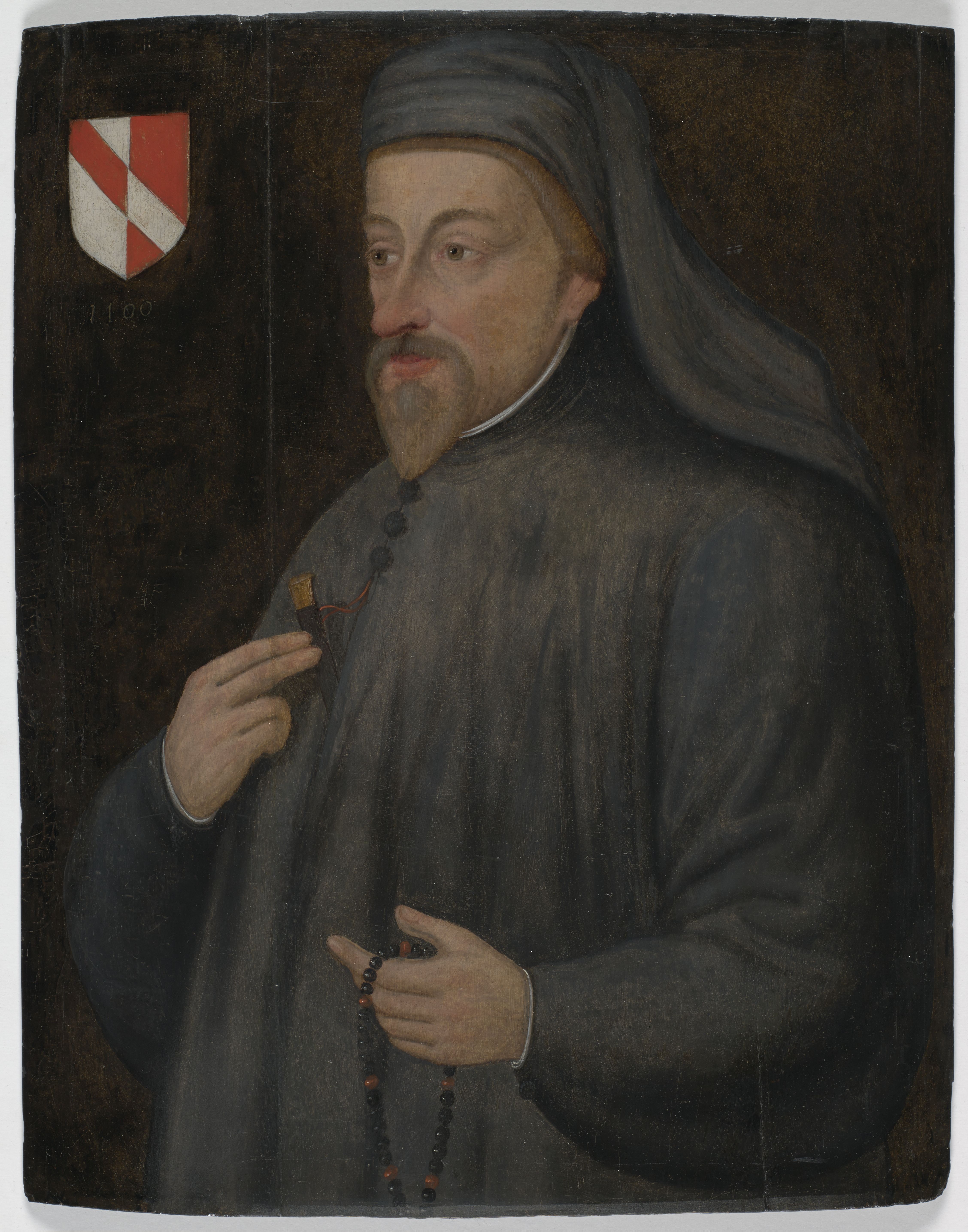easy-come, easy-go
Geoffrey Chaucer, citado em Geoffrey Chaucer - Página 29, de Steve Ellis - Publicado por Northcote House in association with the British Council, 1996, ISBN 0746307772, 9780746307779 - 80 páginas
Geoffrey Chaucer Frases famosas
Geoffrey Chaucer: Frases em inglês
“No empty handed man can lure a bird”
Fonte: The Canterbury Tales
“people can die of mere imagination”
Fonte: The Canterbury Tales
“If gold rusts, what then can iron do?”
Fonte: The Canterbury Tales
Book 5, line 1835-1841
Troilus and Criseyde (1380s)
Contexto: O yonge fresshe folkes, he or she,
In which that love up-groweth with your age,
Repeyreth hoom fro worldly vanitee,
And of your herte up-casteth the visage
To thilke God that after his image
Yow made, and thynketh al nis but a faire
This world, that passeth sone as floures faire.
“Men may the wise atrenne, and naught atrede.”
Fonte: Troilus and Criseyde
“Eek for to winne love in sondry ages,
In sondry londes, sondry ben usages.”
Troilus and Criseyde (1380s)
Contexto: Ye knowe eek, that in forme of speche is chaunge
Withinne a thousand yeer, and wordes tho
That hadden prys, now wonder nyce and straunge
Us thinketh hem; and yet they spake hem so,
And spedde as wel in love as men now do;
Eek for to winne love in sondry ages,
In sondry londes, sondry ben usages.
Book 2, line 22-28
“And therfore, at the kynges court, my brother,
Ech man for hymself, ther is noon other.”
The Knight's Tale, l. 1181-1182
The Canterbury Tales
Book 2, line 22-28
Troilus and Criseyde (1380s)
Contexto: Ye knowe eek, that in forme of speche is chaunge
Withinne a thousand yeer, and wordes tho
That hadden prys, now wonder nyce and straunge
Us thinketh hem; and yet they spake hem so,
And spedde as wel in love as men now do;
Eek for to winne love in sondry ages,
In sondry londes, sondry ben usages.
“This world nys but a thurghfare ful of wo,
And we been pilgrymes, passynge to and fro”
The Knight's Tale, lV, 1990 - 1992
The Canterbury Tales
Contexto: This world nys but a thurghfare ful of wo,
And we been pilgrymes, passynge to and fro;
Deeth is an ende of every worldly soore.
“Thanne is it wysdom, as it thynketh me,
To maken vertu of necessity,”
The Knight's Tale, lV 2177 - 2186
The Canterbury Tales
Contexto: p>What maketh this, but Juppiter the kyng,
That is prince and cause of alle thyng
Convertynge al unto his propre welle
From which it is deryved, sooth to telle,
And heer-agayns no creature on lyve
Of no degree availleth for to strive.Thanne is it wysdom, as it thynketh me,
To maken vertu of necessity,
And take it weel, that we may nat eschue;
And namely, that to us alle is due.</p
The Nun's Priest's Tale, l. 672-677
The Canterbury Tales
Parlement of Foules, l. 1-4; comparable with Hippocrates, Aphorisms 1:1
Fonte: The Parliament of Birds
“the greatest scholars are not usually the wisest people”
The Reeve's Tale, l. 134
The Canterbury Tales
Variante: The gretteste clerkes been noght wisest men.
Fonte: The Complete Poetry and Prose
“He helde about him alway, out of drede,
A world of folke.”
Book 3, line 1721
Troilus and Criseyde (1380s)
General Prologue, l. 305 - 310
Fonte: The Canterbury Tales
Contexto: Of studie took he most cure and most hede.
Noght o word spak he more than was nede,
And that was seyd in forme and reverence,
And short and quik, and ful of hy sentence.
Souninge in moral vertu was his speche,
And gladly wolde he lerne, and gladly teche.
“Ful wys is he that kan hymselven knowe!”
The Monk's Tale, l. 3329
The Canterbury Tales
Fonte: The Riverside Chaucer
“all that glitters is not gold”
Fonte: The Canterbury Tales
“Therfore bihoveth hire a ful long spoon
That shal ete with a feend.”
The Squire's Tale, l. 594-95
The Canterbury Tales
